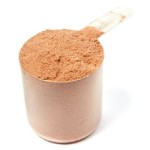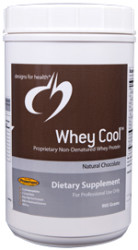 The scoop on protein shakes: Who should use them, why, when, how much, and what to look for in a powder.
The scoop on protein shakes: Who should use them, why, when, how much, and what to look for in a powder.
Many already know that drinking protein shakes can benefit their health, but there is a lot of confusion over how to choose a proper protein shake. While adding a shake to your regimen can be an worthwhile investment in your fitness, if you choose the wrong one, you might be throwing your money away and actually doing your body a disservice. Picking out a protein powder does not have to be a daunting experience, but protein shakes are still a processed food, so we need to learn how to read the label.
Unless you avoid dairy, whey is the way to go. Whey has become so popular because it is the protein component of milk most efficiently absorbed and utilized by the muscles for protein synthesis — i.e. “to get swole”. For individuals with dairy allergies, whey is often still tolerated. It is best to have 20-30 grams within an hour of working out, before, or after, if you’ve done strength training, or both. There are benefits to either way you time it, so it comes down to personal preference and what makes you feel the best. Drinking whey protein before a workout provides a fat-burning boost that lasts long after the workout ends, and having it after a workout helps build muscle mass.
Protein shakes aren’t just for musclemen anymore! A whey protein shake is excellent to have on hand if you’re someone who is on the go a lot and tends to fail in your nutrition for convenience foods. Whey protein has all of the essential amino acids our body requires to thrive that we can only obtain from our diet. Leucine is one of the most notable branched chain amino acids (BCAA’s) that whey is especially high in and is responsible for initiating mechanisms of protein synthesis and muscle building, with help from isoleucine and valine. Leucine also gives your thyroid a boost and prevents post-exercise decline in testosterone, but your body depends on amino acids to carry out every process efficiently. Eggs, the famous muscle-building food, have 1.4g of leucine per 100g, while whey protein has 8 grams. This doesn’t just provide benefits for bodybuilders, leucine can help to combat the natural muscle-loss associated with aging.
Whey protein increases a peptide, GCP-1, which promotes satiety and healthy insulin secretion and utilization. It helps keep insulin levels low to avoid becoming insulin resistant, which leads to many health issues including type II diabetes. Almost everyone could benefit from more stable blood sugar. Drinking whey protein with carbohydrate foods has been shown to lower the glycemic response to the carbohydrates proportionately to the amount of whey ingested. So, try having a shake first before the next time you plan to indulge. If you’re not munching on many colorful vegetables each day, it is essential that you add a greens blend powder to your shake.
For individuals very sensitive to dairy, or for vegans, pea protein and hemp protein shakes are good options. Always try to choose the most minimally processed product available, with the fewest additives. Soy is not a good option. It is usually genetically modified, and eating too much soy is known to result in serious hormone imbalances.
Whey protein concentrate is preferable to whey protein isolate. Isolate is more expensive and is successfully marketed to bodybuilders because it is supposedly a more “pure” form of whey with higher protein content per gram. Whey protein isolate is also sometimes touted as a better choice for those with lactose intolerance or who experience bloating or other issues with concentrates because the processing removes any remaining traces of lactose. However, this also produces a more highly processed food product which causes it to become overly acidifying and to lose many nutritional co-factors, including alkalizing minerals, naturally-occurring vitamins, immune complexes, and healthy fats. Isolate still may be used for a quick source of protein, but if consumed a lot, as an athlete may, can lead to metabolic acidosis with serious consequences, including muscle wasting and increased vulnerability to degenerative disease.
It should be made from raw milk, cold-processed and water-soluble. It may say something like “non-denatured” or “minimally-processed”. High heat does irreversible damage to the majority of components of milk and may cause intolerance even in individuals with no history of milk allergy. Most protein shakes are processed from ultrapasteurized milk using acid, which damages the proteins and makes them insoluble in water. Substances are added to restore solubility, such as genetically modified soy letchin, chemical surfactants used in soap, and hydrolyzed proteins (AKA: MSG!). It’s going to be hard to find a product that doesn’t have a few additives to improve the solubility and mouthfeel of the powder, but as a general guideline, make sure you recognize 95% of the ingredients and don’t eat anything in a package that has more than ten ingredients.
High quality whey protein concentrates should retain the the immune-boosting and regenerative nutritional components of raw milk. They will provide important protein components, lactoferrin, immunoglobulins, serum albumin, active peptides and growth factors. They also contain the precursor to a powerful anti-aging nutrient, glutathione, as well as glycomacropeptides (GMP), immunological components that are beneficial for healthy gut flora.
Your shake should be naturally-sweetened and low in sugar. Context is helpful when thinking about grams of anything. If a cup of mixed berries has about 10 grams of sugar, your protein shake should have less. My shake has 3 grams of sugar, and I probably wouldn’t use anything with more than 6. Many products are sweetened with stevia now, which is a natural sweetener from a leaf and is almost calorie-free, with no effect on blood sugar or associated toxicity. Do I need to write “don’t buy a shake with aspartame, sucralose, or saccharin”? Don’t make me. Don’t go have a great workout and get your cells all prepared and excited to gobble up a bunch of nutrients and then shuttle poison to them. 3 grams of sugar is equivalent to roughly three slices of apple, it’s not worth replacing with an artificial sweetener.
It should absolutely be from grass-fed cattle, rBGH-free, GMO-free and organic. Even if you’re not the most mindful label-reader and don’t already shop this way, I think your protein shake is somewhere it is critical to make the investment. The greatest allure of drinking whey is that it is rapidly absorbed into the muscles within minutes. I certainly don’t want bovine growth hormone, antibiotics, pesticides, and genetically modified ingredients included in my nutritional supplement. Cows are not meant to eat corn and raw milk from grass-fed cows has much higher levels of CLA, healthy bacteria, enzymes, and the ideal ratio of omega-3 and omega-6 fats. CLA is an important nutrient for improving body composition, blood sugar regulation, bone health, vascular health, promoting healthy cholesterol and triglyceride levels; it’s basically good for everything.
Adding a whey protein shake is a great way to get some essential nutrition, not only for fitness fanatics, but for anyone who wants to improve their health. If your shake doesn’t fit the above criteria, you’re not getting the full benefit of whey’s nutrients. Maybe that’s acceptable if you simply want a quick source of protein, but if you can’t invest in a higher quality product right now, my suggestion is to instead keep some hard-boiled eggs ready and have 3-4 of those with a handful of veggies before or after your workout. If you choose a lower quality shake, you may just be adding another processed-into-garbage food to your diet, and that’s never the way to achieve optimal wellness.
Resources:
http://www.naturalnews.com/001522_bodybuilding_supplements.html
http://www.naturalnews.com/031979_protein_powder_inflammation.html
http://fitness.mercola.com/sites/fitness/archive/2011/05/11/whey-protein-shown-superior-to-other-milk-proteins-for-building-muscle.aspx
http://www.muscleandfitness.com/supplements/build-muscle/does-your-whey-protein-powder-suck?page=2
http://www.nutritionj.com/content/pdf/1475-2891-8-47.pdf
http://www.jissn.com/content/4/1/8
Related Supplements:
Whey Cool™ Chocolate Powder and Whey Cool™ Vanilla Powder by Designs For Health
 Whey Cool™ powder contains the same proprietary non-denatured whey protein concentrate used in PaleoMeal®. We do not use cross flow filtration, microfiltration, ultrafiltration, hydrolyzation or ion exchange methods, but instead use a proprietary filtration and drying process. Whey Cool™ maintains the full range of the fragile immune-boosting and regenerative components naturally present in fresh raw milk and colostrum, such as immunoglobulins, lactoferrins and lactoferricin.
Whey Cool™ powder contains the same proprietary non-denatured whey protein concentrate used in PaleoMeal®. We do not use cross flow filtration, microfiltration, ultrafiltration, hydrolyzation or ion exchange methods, but instead use a proprietary filtration and drying process. Whey Cool™ maintains the full range of the fragile immune-boosting and regenerative components naturally present in fresh raw milk and colostrum, such as immunoglobulins, lactoferrins and lactoferricin.
PurePea™ Protein Powder by Designs for Health
 PurePea™, a natural pea protein isolate, offers a high level of functionality and nutritional benefits. PurePea™ is a true vegan protein which has high bioavailability and excellent digestibility.* The raw materials, North American grown yellow peas, are not genetically modified (non-GMO) and are produced with a natural fermentation process which uses no chemical solvents.
PurePea™, a natural pea protein isolate, offers a high level of functionality and nutritional benefits. PurePea™ is a true vegan protein which has high bioavailability and excellent digestibility.* The raw materials, North American grown yellow peas, are not genetically modified (non-GMO) and are produced with a natural fermentation process which uses no chemical solvents.
